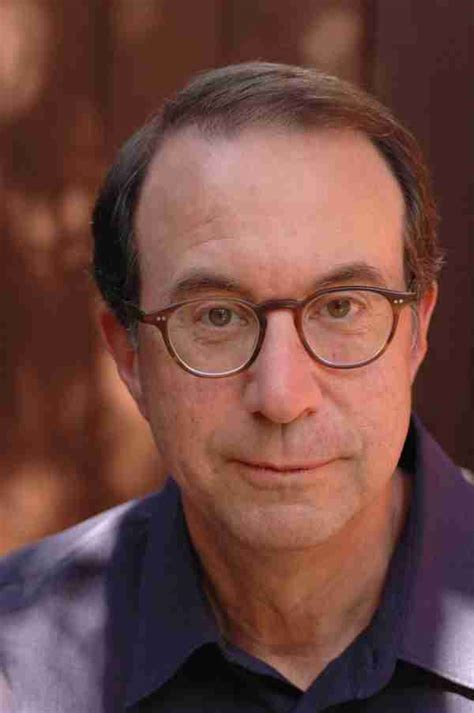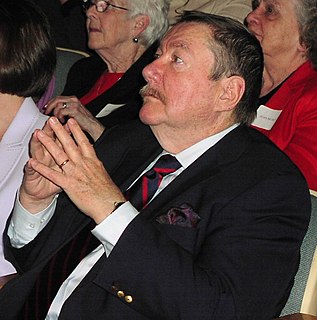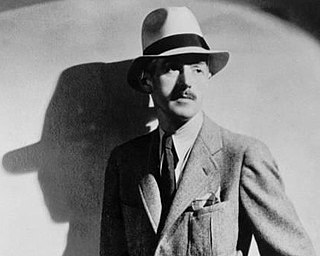A Quote by Robert Masello
If you feel like keeping a journal-that neither you nor anyone else on earth will ever want to read-be my guest. But if you want to write something that may eventually see the light of day, that a magazine might buy or a publisher publish, then you'll have to knock off the journaling and do the grunt work that real writing requires.
Related Quotes
Curiously, the balance seems to come when writing is woven into every aspect of my life, like eating or exercising - one flows constantly into the next: I'll wake up and have coffee, read the news, then write a letter or two (always in longhand), then go teach, and after teaching write a bit in a journal - dreams, what I had for breakfast and lunch and why I had it, what's on the iPod, sexual habits, etc. - then read a bit, then work on a real bit of writing...you get the idea.
I never had a plan, except to write. I love what I do, and have from the beginning. Loving what you do makes it a lot easier to work, every day, to face the tough spots and heel in for the long haul. Nothing against plans; they work for some people. But for me, if I'd been planning, worrying about numbers, trying to micro-manage my career, I wouldn't have focused on the writing. If you don't write, you're not read. If you're not read, you don't sell. So that's my Master Plan, I guess. Write the books, let the agent agent, the editor edit, the publisher publish.
It's not possible to advise a young writer because every young writer is so different. You might say, "Read," but a writer can read too much and be paralyzed. Or, "Don't read, don't think, just write," and the result could be a mountain of drivel. If you're going to be a writer you'll probably take a lot of wrong turns and then one day just end up writing something you have to write, then getting it better and better just because you want it to be better, and even when you get old and think, "There must be something else people do," you won't be able to quit.
Despite wanting to work in publishing, I was a publisher's worst nightmare: I rarely bought new books. So my goal was to publish the kind of books I would buy, and read. My reading habits have changed since starting the press. The only other "goal", per say, is to continue to experiment. I don't want the press to ever fall into a formula, or to be pigeonholed - "They do great reissues of modernist poets!" - I want to keep pushing, exploring the kind of title we can get away with. And working with authors who challenge the way I think about writing, editing and reading.
I write because I have an innate need to. I write because I can't do normal work. I write because I want to read books like the ones I write. I write because I am angry at everyone. I write because I love sitting in a room all day writing. I write because I can partake of real life only by changing it.
You see, writing down your meanderings gets something started deep in the recesses of your brain. That distant part of your mind knows that you want to write stories or poems or plays and not endless jabber, and it will get to work. It may take a while. You may have to write this stuff for hours or days or weeks, but eventually that subterranean part of your brain will come through and begin to send you ideas.
Every publisher or agent I've ever met told me the same thing - that Irish readers don't want to read about the bad old days of the Troubles; neither do the English and Americans - they only want to read about the Ireland of The Quiet Man, when red-haired widows are riding bicycles and everyone else is on a horse.
Opportunities may come along for you to convert something -something that exists into something that didn't yet. That might be the beginning of it. Sometimes you just want to do things your way, want to see for yourself what lies behind the misty curtain. It's not like you see songs approaching and invite them in. It's not that easy. You want to write songs that are bigger than life. You want to say something about strange things that have happened to you, strange things you have seen. You have to know and understand something and then go past the vernacular.
When you write, you want fame, fortune and personal satisfaction. You want to write what you want to write and feel it's good, and you want this to go on for hundreds of years. You're not likely ever to get all these things, and you're not likely to give up writing and commit suicide if you don't, but that is -- and should be -- your goal. Anything else is kind of piddling.
I think it comes in cycles for Brandy [Burre] and for many women. You want to take care of your home, making it as good as possible for your kids and for yourself, and then eventually you feel trapped and you want to break out of that. You want to be someone else and you want the world to look at you as something else. Eventually, you come back again. The cycles are very much a part of her life.
Making art now means working in the face of uncertainty; it means living with doubt and contradiction, doing something no one much cares whether you do, and for which there may be neither an audience nor reward. Making the work you want to make means setting aside these doubts so that you may see clearly what you have done, and thereby see where to go next. Making the work you want to make means finding nourishment within the work itself.






































